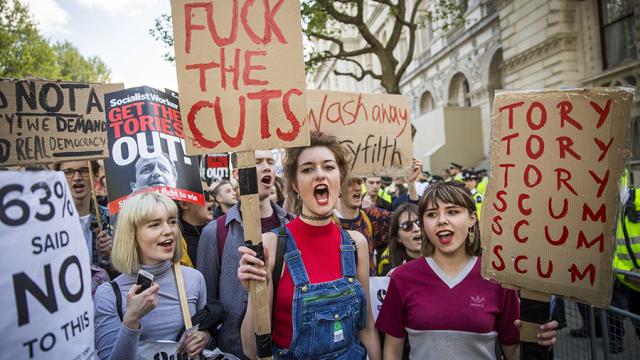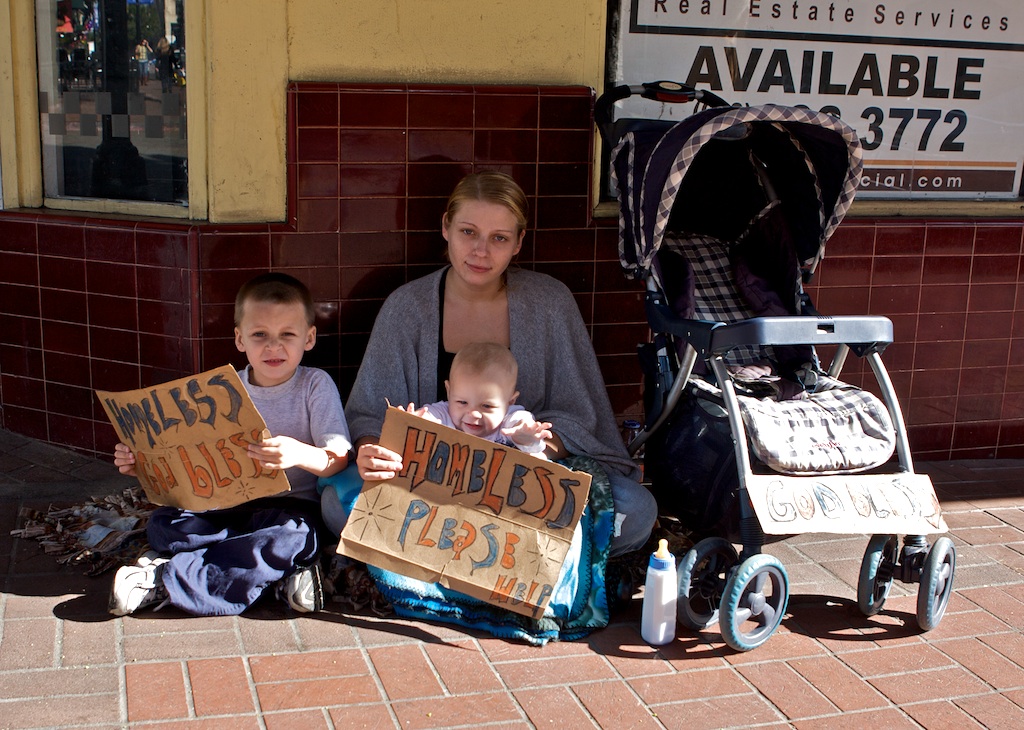
The number of people sleeping on the streets of Britain has soared to a six-year high. New official statistics show that homelessness has increased by a staggering 16 percent in the last 12 months, and has more than doubled since 2010.
The figures, released by the Department for Communities and Local Government, show that through 2016 around 4,134 people slept on the streets across England. This is an increase of more than 50 percent in the last two years.
The official homelessness report also shows that almost 1,000 rough sleepers in 2016 were in London. With more than 3,000 individuals sleeping on the streets in the rest of England, homelessness numbers have risen by one-fifth outside the capital in just 12 months.
A "National Scandal"
Both opposition parties, Labour and the Liberal Democrats, were quick to attack the statistics, blaming the rise in homelessness in the U.K. on the continued austerity policies pushed by the Conservative government.
Shadow Housing Secretary John Healey described the trend as “shameful" and attributed the growing number of rough sleepers to the £5 billion in cuts made to housing benefits in the last six years; the loss of affordable council housing; the rising cost of private rents; and the 45 percent cut in support services for homeless people.
“It is a national scandal that in England in the 21st century the number of people forced to sleep rough on our streets is spiralling upwards – and this is only the tip of the iceberg,” Healey told the Huffington Post.
The Tories hit back, pinning the rise to more advanced homelessness counting systems. They were also quick to point out that a large number of those sleeping on the streets in London were foreign nationals – as if for some reason that made the escalating homeless problem not quite so bad.
A Combination of Personal and Structural Factors
While economics, political policies and employment are leading factors in the cumulative rise in U.K. homelessness, the exact reasons why a person becomes homeless are complex, varied and personal. However, as studies have shown, the personal issues in one’s life that leads him or her to the streets are often exacerbated by larger political, economic and social elements at play.
As the U.K. homeless charity Shelter notes, "Homelessness is caused by a complex interplay between a person’s individual circumstances and adverse ‘structural’ factors outside their direct control.” Some of the principle personal factors that can result in an individual resorting to sleeping on the street include a breakdown in family life and relationships; individual factors such as debt; poor mental health; a lack of qualifications or social support; or an institutional background that includes having been in the armed forces, in mental care or in prison.
According to the charity, some of the primary structural causes of homelessness, which are typically outside the control of individuals and families affected by homelessness, include unemployment, a lack of affordable housing, poverty, housing policies, housing benefit and broader policies such as the closing down of hospitals with long-stay psychiatric care.
Shortage of Affordable Homes
It’s no secret that Britain is in the grip of a housing shortage. The nation’s burgeoning housing crisis has been pinned to numerous causes, including successive governments failing to provide the degree of housing the U.K. needs, the replacement of social housing provided by local authorities with privately rented homes, and the cost of rent soaring to unaffordable levels.
Not only have successive government and administrations failed to get on top of the housing crisis by building new homes, but the cost of housing in Britain has reached eye-watering amounts, pricing many, particularly young people, out of the market.
Rising Rent
The increase in people living on the streets has been directly linked to the cost of rising rents and tenancies coming to an end. Between 2010 and 2015, government figures show that households which became homeless due to the end of an assured, shorthold tenancy had risen by 154 percent. Rent arrears was a lead cause for the increasing number of tenancy terminations.
But homelessness runs deeper than current economic activity or trends. Louise Weaver, communications manager at Homeless Link, a charity that works with homeless people across England, told Occupy.com: “While government statistics show that the main cause of homelessness currently is loss of a tenancy, Homeless Link believes that the underlying factors are broader than housing or economic issues."
According to Weaver, there are many reasons a person can become homeless; put differently, there is “no single reason why someone can end up without a home.” Statistics from Homeless Link show that in 2012, the biggest reason people lost their homes was due to friends or relatives no longer being able to provide them support. Other primary reasons were a breakdown in a relationship, mortgage or rent arrears, and the end of rented accommodation.
Welfare Cuts Worsening the Crisis
Successive British governments have failed to provide the new homes Britain so desperately needs. The Tories’ commitment to privatize social housing is resulting in the rising cost of rent, which affects the poorest and most vulnerable. As does the relentless cuts to the welfare state.
Welfare reforms, such as housing benefit cuts, sanctions and the controversial bedroom tax, have been cited has fueling the nation’s worsening homelessness crisis.
An independent study into the rise of homelessness in Britain says the Tories’ welfare policies are the biggest single trigger for the increase in people sleeping on the streets across the U.K.
The study found that reforms to welfare, such as the bedroom tax, which means those living in a housing association property deemed to have one or more spare bedroom, receive less housing benefit, played a large role in a third of homeless cases in 2014.
While the many personal reasons as to why a person becomes homeless are outside the control of government and policymakers, the structural reasons for the rise homelessness are directly related to government policy. Instead of providing the help and support vulnerable people often need to help them keep a roof over their head, the government’s unyielding efforts to axe the welfare state, and to take away affordable social housing in favor for privately-rented homes with unrealistic rental costs, is contributing to a society tarnished with rising poverty and a spiraling homelessness crisis.
3 WAYS TO SHOW YOUR SUPPORT
- Log in to post comments














Comments
DH Fabian replied on
Reframe the issue
All they need to do is follow the example set by the US over the past 30-some years, during which we saw tremendous upward wealth redistribution. It's essential to re-educate the broader public to view poverty merely as a lifestyle choice of lazy people. Maintain the illusion that our economic system is so successful that there are jobs for all. Phase out all discussion of poverty and joblessness. This maintains the illusion that our deregulated corporate state is actually quite successful, good for the country. In the process, keep the proverbial masses deeply divided, middle class vs. poor, ensuring that there won't be a widespread public push-back.